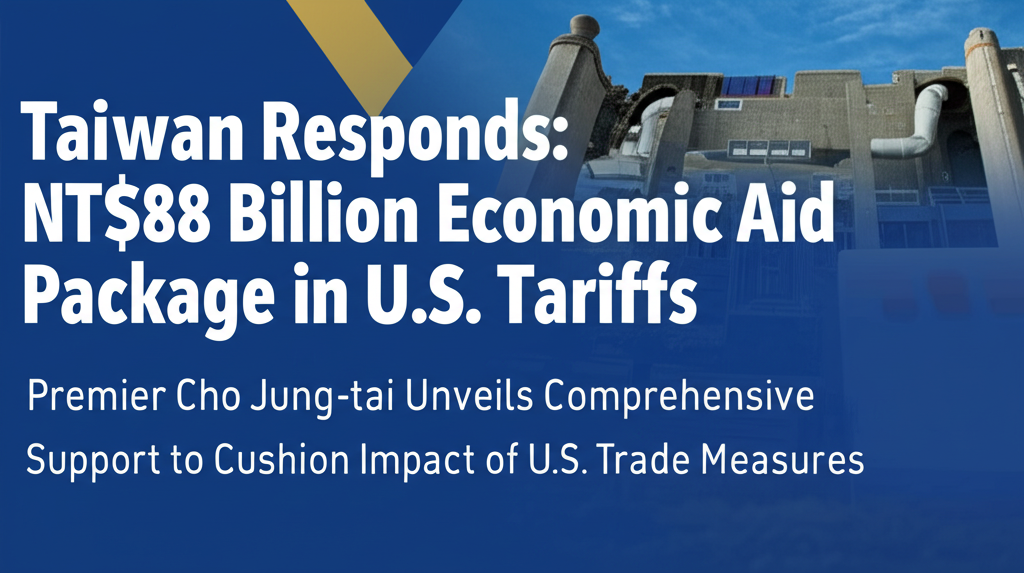Taiwan Responds: NT$88 Billion Economic Aid Package in the Face of U.S. Tariffs
Premier Cho Jung-tai Unveils Comprehensive Support to Cushion Impact of U.S. Trade Measures

Taipei, April 4 – In a move to bolster its economy against the headwinds of U.S. trade policies, Taiwan's Executive Yuan has announced a robust NT$88 billion (US$2.65 billion) aid package designed to support businesses impacted by the recently announced U.S. tariffs.
Premier Cho Jung-tai (卓榮泰) addressed the nation from Taipei, acknowledging the potential "shocks" Taiwan might face following the U.S. announcement of a 32 percent import tax on a wide array of Taiwanese goods. While specific economic impact figures remain unquantified, the government anticipates considerable effects across key sectors.
Industries poised to be most affected, according to Premier Cho, include electronics and information technology, steel and metal, machinery, auto parts, construction materials, and home appliances. Agricultural products, such as moth orchids, edamame, tilapia, common dolphinfish, and bass, are also expected to face challenges.
The NT$88 billion initiative is slated to be funded through a special budget, requiring legislative approval. Premier Cho has already scheduled meetings with both ruling and opposition party lawmakers to secure crucial support for the plan.
Vice Premier Cheng Li-chiun (鄭麗君) detailed the allocation of funds. A substantial NT$70 billion will be dedicated to strategies like lowering loan interest rates, reducing administrative costs, and expanding tax exemptions for affected industries. Furthermore, these funds will facilitate market diversification efforts and investment in research and development initiatives.
The remaining NT$18 billion will provide targeted assistance to the agricultural sector, encompassing loans, interest subsidies, and equipment subsidies. Vice Premier Cheng emphasized the government's ongoing engagement with industries and businesses. To streamline access to support, relevant agencies will establish service hotlines, commencing April 8.
Taiwan is among numerous countries targeted by the "reciprocal tariffs," which President Donald Trump has described as an effort to address perceived imbalances in trade relationships, reduce trade deficits, and stimulate American manufacturing.
Certain goods, including copper, pharmaceuticals, and semiconductors, are exempt from the tariffs, which are set to take effect on April 9. Furthermore, Taiwanese auto parts manufacturers will be subjected to a 25 percent import tax, expected to be implemented before May 3, as part of the U.S. administration's expansion of duties on foreign automobiles.
According to data released by the Ministry of Economic Affairs (MOEA), Taiwanese exports to the U.S. reached US$111.4 billion in 2024, representing 23 percent of Taiwan's total exports. Leading the export list were ICT products, constituting 52 percent of total exports, followed by electronic components (13.4 percent), automobile parts (1.8 percent), fasteners (1.8 percent), and mechanical parts (1 percent). Simultaneously, Taiwan imported US$46.5 billion worth of American goods, accounting for 12 percent of total imports, resulting in a trade surplus of US$64.9 billion with the U.S., as indicated by MOEA data.
